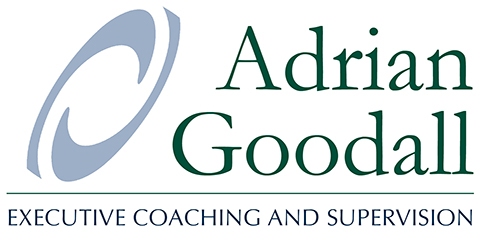When you’ve lost your job and are looking for a way forward
As job cuts continue to hit the financial and professional services sector* with the worsening eurozone storm, here are some thoughts about what you can do, and how you can be if you lose your job (or know someone who has).
Option 1 (which you’ve probably heard a few times by now!): Keep Calm, (put it in perspective) and Carry On. You can sort this out. It’s happened to many before you – the vast majority have been just fine – and for some it will have been a ‘blessing in disguise’ as they move onto a new role. That could be you too. Obviously you’ll be dusting off your CV, looking at your network of contacts and headhunters, keeping in touch with news and ideas in your sector and being ‘open for business’ by 8.30am. You didn’t need me to tell you all that, did you? And it’s always best to think about your future from a frame of mind which is as calm, confident and as resilient as you can make it. You’ll make clearer decisions and communicate them better.
The problem is, times are tough – really tough – this time around, especially if you’re used to a gilded life in the City. New jobs are very scarce. So for some, Option 1 just won’t cut the mustard – it’s not at all obvious how to ‘carry on’. And rather than being calm and resilient, you could be experiencing a cold fog of doubt, humiliation, anger, a visceral fear gnawing at your confidence, paralysing your usual ability to get things sorted. Your very identity, long defined by your work, your seniority, your power, is under threat. What, where, and who, are you now?
Option 2 is a more ‘strategic’ reassessment: Stop. Observe. Witness. Notice what is happening and what’s different about you and the circumstances you find yourself in. In a fog, any information is valuable. Recognise that this could be a moment of significant change – and it’s up to you what decisions you make about that change. Resilience is about generating ideas and options and lining up your strengths and resources to support yourself as you test them out.
So, reflect upon what’s ‘hurting’ – and what’s not! Where it’s not (maybe a big relief!), that’s a clue that you didn’t care that much, you were bored or the previous role was more of a burden than a pleasure. How much energy, effort or stress has it been costing you to live with that up until now? Are you prepared to take that on again?
Where the job loss is hurting, consider if it’s:
- the job that’s just disappeared (redundancy – hardly your fault); or
- was it that your best capabilities weren’t really matched up to the role?; or
- maybe you know that this time you’ve messed up. Perhaps you’re blaming yourself – that’s only going to help you if you now choose to look at things differently. “I’ve learnt from that. What can I do differently from here?”
Once you’ve checked out what’s happened and where you are right now, then there are many techniques for developing clarity and confidence about the message you want to give to the world about what happens next. Only when you’re clear about what you really want will you be able to demonstrate the commitment and desire that any prospective employer wants to see.
These approaches may involve using some unfamiliar ‘muscles’ – values, beliefs, purpose, finding different perspectives – ‘fluffy stuff’, as your master-of-the-universe alter-ego might have scoffed. Except that this can be very challenging, unfluffy and ultimately very rewarding and exciting work. Just as physical activity can re-energise you, so exercising and changing the complex web of entrenched thoughts, assumptions and behavioural patterns which together make up your experience of the world can release powerful mental and emotional energies.
You can try these on your own or you may feel this is not the time to ‘walk alone’. You can work with trusted friends – or invest in support in the form of a professional coach or counsellor who can facilitate your exploration, challenge you and hold you to task in confidence. It can make a big difference to have the right kind of support for this sort of change-work.
Here are three approaches for starters:
Matching up your energy and your capability
- List the capabilities and strengths that you have demonstrated so far in your life – what might you give yourself an A for? (you can use post-it notes and the kitchen table!)
- List what you’ve really enjoyed doing, ie the things that just thinking about them gives you a ‘lift’. (Different coloured post-its?)
- List areas or things where others have said you’ve made a real impact.
How do these lists match up? What are the patterns you can see around where your energy, focus and skills will have their best effect? (And where your energy may have been wasted in the past?)
Testing out what a future role could feel like
Perhaps you have some sense of the kind of role you would like to have next. If so, and you’re in a place where you feel comfortable to do some ‘exploring’, then try this:
- point (with your finger) to the direction which feels right for the future;
- move (physically) in that direction and stop when you reach a point that represents a year from now;
- and, in that space, imagine that the job is yours, it’s happened, it’s true! What do you notice about what’s happening for you there – your sense of energy, self-belief, commitment – or not? What might other people who are important to you notice about you there? Does that give you any clues about how good that future is for you?
What support do you need? Make a plan!
If that does seem like a good future to be in, and you could be at or close to your best there, then what might you compare that to – it’s like… what? (It could be anything, whatever makes sense to you – no-one else needs to know!). Think about that for a minute or two.
- And for that future to be like that, you need to be like… what? Again, explore the qualities of that.
- And for you to be like that, what support do you need, from others, and from yourself? Make a short list.
- What’s the first step you can take now, towards that future? (Does anything else need to happen first before you do that?) And what’s the second thing you can do? And the third?
Start developing a plan that’s realistic, but also so you can register a sense of progress over the coming days. And as you take those steps, treat yourself to the odd glass of Chablis (or a refreshing run around the park) and remind yourself of those ‘A’s and how you and your life can be in a year’s time, now you’re back on track.
And if at first you don’t succeed, don’t give up!
Walk on, walk on, with hope in your heart,
and you’ll never walk alone.
For more on how coaching can work please take a look through this website or get in touch for a chat. You could even combine coaching with a restorative country walk: See your world more clearly. For the cost of a decent new suit or a fortnight’s family shopping at Waitrose, you could start to make some significant shifts in your thinking.
* Number of City jobs average for 2012 estimated to be 255,000 compared with peak of 354,000 in 2007





